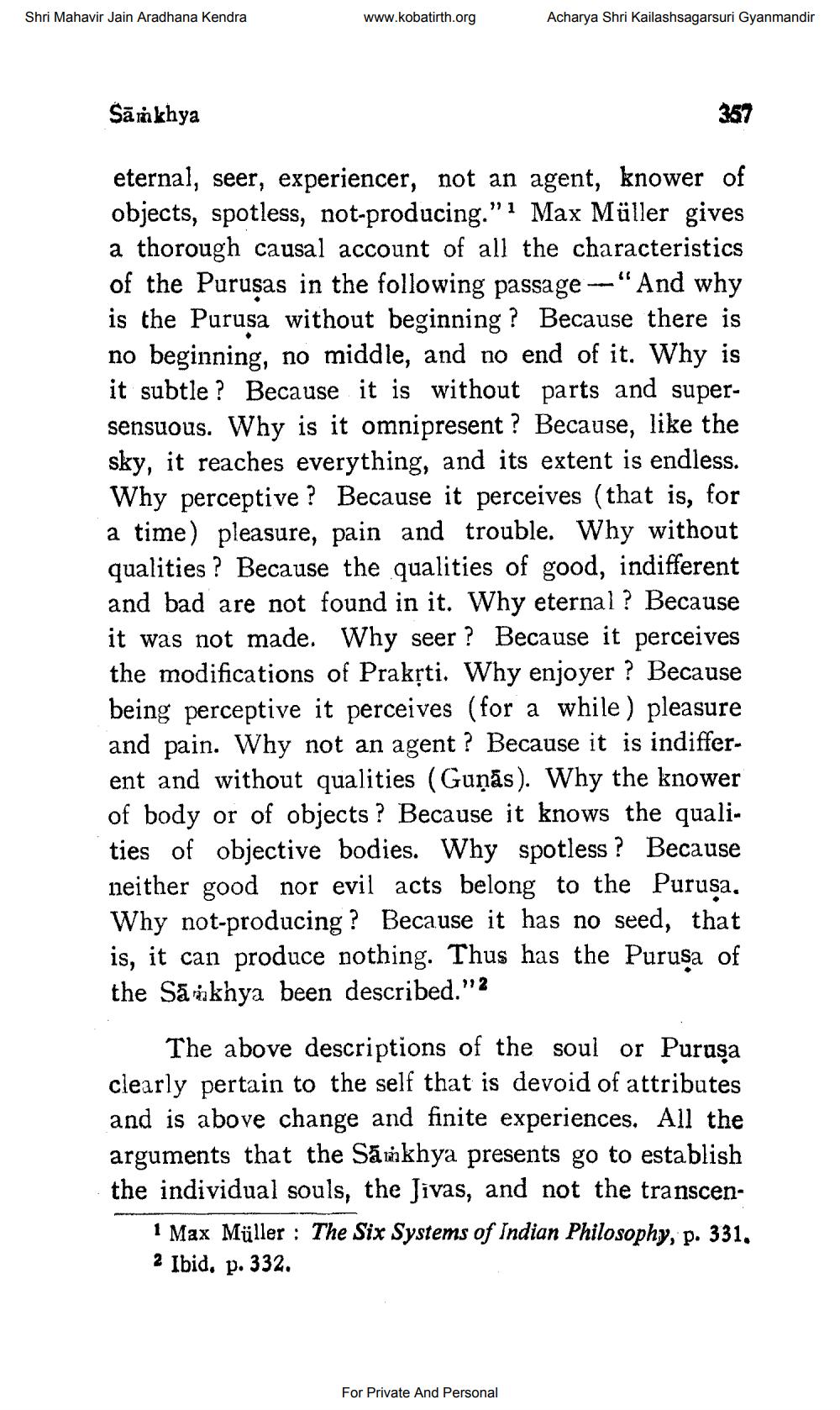________________
Shri Mahavir Jain Aradhana Kendra
www.kobatirth.org
Acharya Shri Kailashsagarsuri Gyanmandir
Sāṁkhya
eternal, seer, experiencer, not an agent, knower of objects, spotless, not-producing." "1 Max Müller gives
357
a thorough causal account of all the characteristics of the Purusas in the following passage--"And why is the Purusa without beginning? Because there is no beginning, no middle, and no end of it. Why is it subtle? Because it is without parts and supersensuous. Why is it omnipresent? Because, like the sky, it reaches everything, and its extent is endless. Why perceptive? Because it perceives (that is, for a time) pleasure, pain and trouble. Why without qualities? Because the qualities of good, indifferent and bad are not found in it. Why eternal? Because it was not made. Why seer? Because it perceives the modifications of Prakṛti. Why enjoyer? Because being perceptive it perceives (for a while) pleasure and pain. Why not an agent? Because it is indifferent and without qualities (Guņās). Why the knower of body or of objects? Because it knows the qualities of objective bodies. Why spotless? Because neither good nor evil acts belong to the Purusa. Why not-producing? Because it has no seed, that is, it can produce nothing. Thus has the Purusa of the Sakhya been described."
The above descriptions of the soul or Purusa clearly pertain to the self that is devoid of attributes and is above change and finite experiences. All the arguments that the Samkhya presents go to establish the individual souls, the Jivas, and not the transcen
For Private And Personal
1 Max Müller: The Six Systems of Indian Philosophy, p. 331. 2 Ibid. p. 332.




